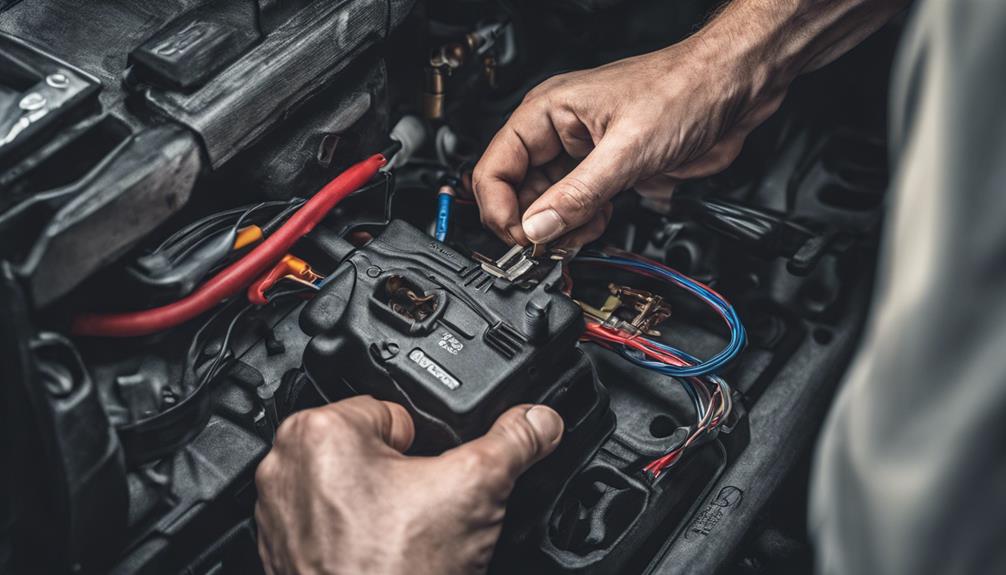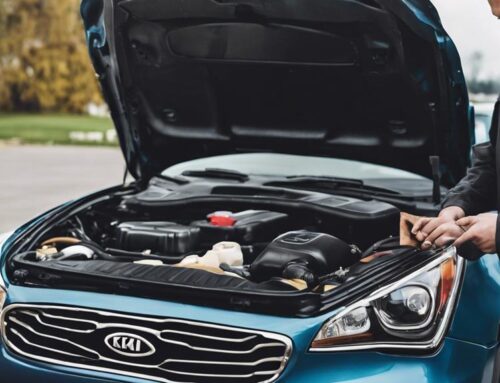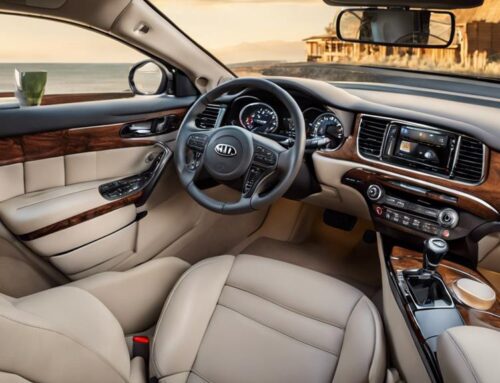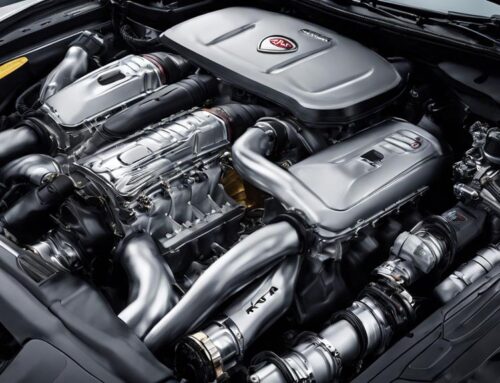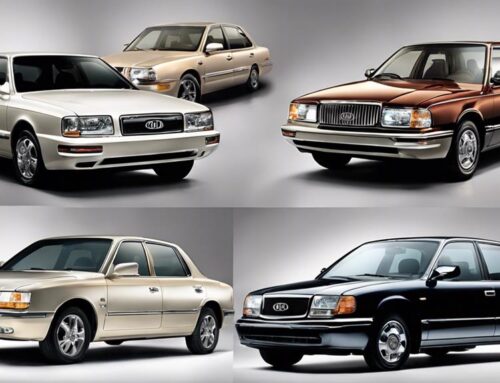Your Nissan NV200's ignition system guarantees your engine starts smoothly and operates efficiently. Key components like spark plugs, ignition coils, and the ignition switch need regular checks. Spark plugs ignite the air-fuel mixture, while the ignition coil provides the necessary high voltage. Any issues in these parts can lead to engine misfires, difficult starts, or stalling. Always verify battery connections and use diagnostic tools like an OBD-II scanner for thorough examinations. Upgrading to high-quality components can also enhance performance. Keep an eye out for internal tips that could save you significant hassle and improve reliability.
Key Takeaways
- Regularly inspect and maintain the spark plugs, ignition coils, and battery connections to ensure optimal performance of the Nissan NV200.
- Faulty ignition coils and worn-out spark plugs are common causes of misfires and starting issues in the Nissan NV200.
- Utilize diagnostic tools like a multimeter and OBD-II scanner for accurate identification of ignition problems in your Nissan NV200.
- Symptoms of ignition failure in the Nissan NV200 include intermittent starting issues, engine misfires, and dashboard warning lights.
- Upgrading to high-quality spark plugs and high-output ignition coils can enhance the performance and fuel efficiency of the Nissan NV200.
Ignition System Overview
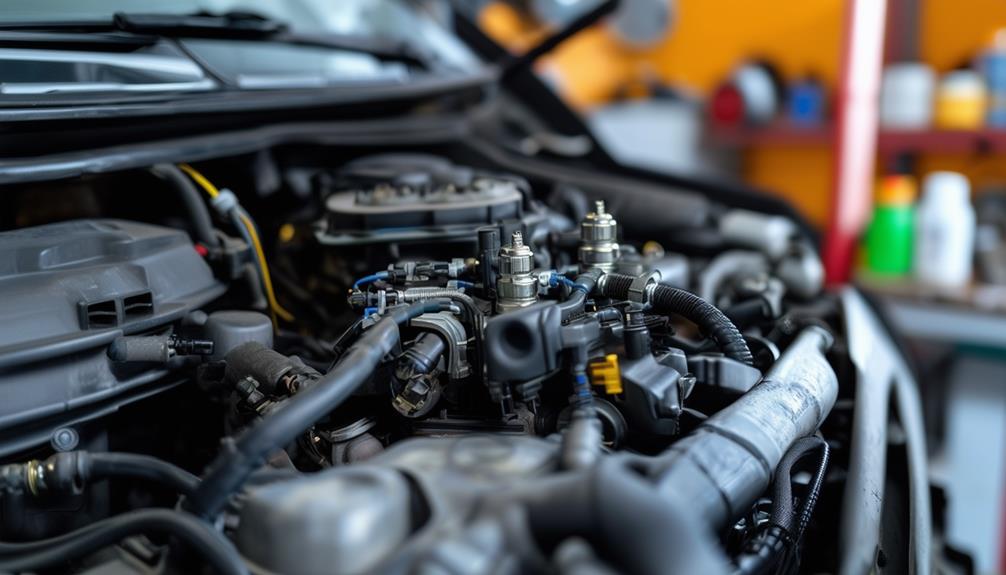
When scrutinizing the ignition system of the Nissan NV200, understanding its core components and their functions is vital. This understanding not only assists in ignition system troubleshooting but also enhances your approach to ignition system maintenance.
The ignition system, acting as the heart of your vehicle's engine, is responsible for producing the spark that ignites the air-fuel mixture, powering your engine to life. Along with the ignition system, it's advantageous to familiarize yourself with the electronic key systems of the NV200, as they play a crucial role in the vehicle's overall security and functionality.
First, you need to know that the ignition system comprises various elements, all working in harmony. While we won't delve deeply into each component here, it's necessary to grasp the interplay between them to diagnose issues effectively. For example, a malfunctioning spark plug or a failing ignition coil can result in poor engine performance, rough idling, or even a no-start condition. When troubleshooting, always check for these common culprits first.
Regular ignition system maintenance is essential for preventing these problems. You should routinely inspect the spark plugs for wear and tear, ensuring they're clean and properly gapped. Replace them as recommended by the manufacturer.
Additionally, keep an eye on the ignition coils and wires, looking for any signs of damage or corrosion. It's also wise to periodically check the battery connections and voltage, as a weak battery can impact the efficiency of the ignition system.
Key Components Explained
Understanding the main components of the Nissan NV200's ignition system is fundamental for effective diagnostics and maintenance. Each part plays a significant role in guaranteeing your vehicle starts smoothly and runs efficiently. By familiarizing yourself with these components, you'll be prepared to identify issues and maintain peak performance. Regular inspections can also prevent common battery drain issues, ensuring the longevity of your vehicle's electrical systems.
First, let's look at the spark plug. It ignites the air-fuel mixture within the cylinders, creating the combustion needed to power the engine. In the NV200, high-quality spark plugs ensure efficient combustion, maximizing fuel economy and engine performance.
Next, consider the distributor cap. This component routes high-voltage electricity from the ignition coil to the spark plugs in the correct firing order. A worn or cracked distributor cap can lead to misfires, poor engine performance, or even starting issues.
Here are the main components you should familiarize yourself with:
- Spark Plug: Essential for igniting the air-fuel mixture in the cylinders.
- Distributor Cap: Distributes high-voltage electricity to the spark plugs.
- Ignition Coil: Converts the battery's low voltage into the thousands of volts needed to create a spark.
- Ignition Switch: Activates the ignition system and allows current to flow to the ignition coil.
- Crankshaft Position Sensor: Monitors the position and rotational speed of the crankshaft, ensuring precise ignition timing.
How the Ignition Works
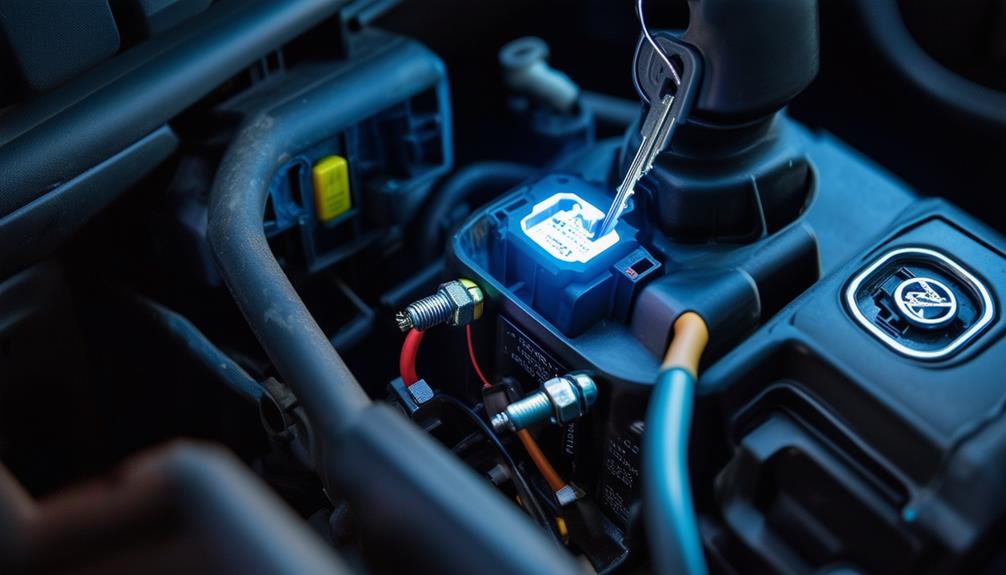
The ignition system in your Nissan NV200 operates by coordinating a series of precise actions that ultimately ignite the air-fuel mixture in the engine's cylinders. At the heart of this process is the ignition spark, a tiny but potent force that ignites the volatile air-fuel mixture.
When you turn the key, an electrical current is sent from the battery to the ignition switch. This current then travels to the ignition coil, which steps up the voltage to a level high enough to create a spark. The high-voltage current is then delivered to the spark plugs through a distributor or, in modern systems, directly via individual ignition coils.
Each spark plug is strategically positioned in the engine's cylinders. As the high-voltage current reaches the spark plug, it jumps the gap between the central electrode and the ground electrode, creating the ignition spark. This spark is precisely timed to occur at the best moment, ensuring the air-fuel mixture ignites just as the piston reaches its ideal position in the compression stroke. Regular maintenance can help keep these components in top shape and prevent common ignition problems such as ignition switch failure or issues with the transponder key system.
The timing and sequence of these sparks are critical. They're controlled by the engine control unit (ECU), which uses input from various sensors to adjust the timing dynamically based on engine conditions. This guarantees peak performance and efficiency.
Innovative technologies in the ignition system of your Nissan NV200 allow for precise control and adaptation, guaranteeing reliable engine starts and smooth operation. Understanding how the ignition works can help you diagnose issues more effectively, such as misfires or poor fuel efficiency, by focusing on the core elements like ignition spark and electrical current.
Ignition Coil Functionality
Ignition coils play a pivotal role in your Nissan NV200's ignition system by converting the battery's low voltage into the high voltage needed to generate an ignition spark. Without this vital component, your vehicle wouldn't ignite efficiently, leading to numerous performance issues. For those looking to replace or upgrade their Nissan keys, including transponder keys, fobs, and smart keys, you might find helpful resources here. Understanding how ignition coils function and ensuring their best performance is essential for maintaining a reliable and innovative driving experience.
Your NV200's ignition coil operates by amplifying the 12 volts from the battery to thousands of volts needed to create a spark at the spark plug. This high voltage is necessary to jump the gap at the spark plug and ignite the air-fuel mixture in the combustion chamber. Ignition coil testing is important for diagnosing any issues that could compromise this process.
Here are a few key points to keep in mind when dealing with ignition coil functionality:
- Voltage Transformation: Ignition coils convert low battery voltage to the high voltage required for spark generation.
- Spark Plug Maintenance: Regular maintenance of spark plugs ensures they can effectively utilize the high voltage from the ignition coil.
- Diagnostic Tools: Use specialized diagnostic tools for ignition coil testing to accurately assess coil performance.
- Heat Management: Ensure your ignition coils are properly cooled, as excessive heat can cause them to fail.
- Coil Configuration: Familiarize yourself with the coil-on-plug design in your NV200, which integrates the coil and spark plug for more efficient energy transfer.
Common Ignition Problems
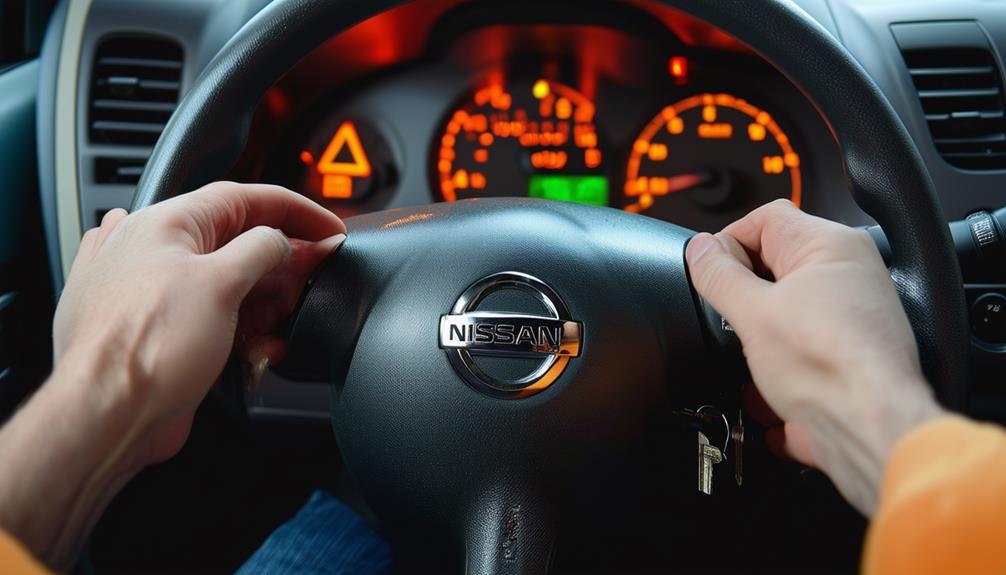
When your Nissan NV200 starts experiencing ignition problems, it can feel like navigating through a maze of potential issues. Effective ignition troubleshooting requires a systematic approach to diagnose and address the root causes. Let's dive into some common problems you might encounter.
One frequent issue is a faulty ignition coil. An ignition coil's primary role is to convert the battery's voltage into the higher voltage needed to generate a spark. When it fails, you might experience misfires and poor engine performance. Another common culprit is a worn-out spark plug. Spark plugs ignite the air-fuel mixture in your engine, and if they're damaged or dirty, it can lead to difficult starts or even engine stalling.
The following table outlines common ignition problems and their potential causes:
| Problem | Potential Cause |
|---|---|
| Engine Misfire | Faulty ignition coil |
| Difficult Starts | Worn-out spark plugs |
| Engine Stalling | Defective ignition switch |
Moreover, a defective ignition switch can also result in significant issues. If the switch is faulty, it can prevent the electrical system from engaging properly, leaving you unable to start your vehicle. In such instances, an ignition repair is essential to restore functionality.
To effectively address these issues, you need a keen eye and some technical expertise. Begin by visually inspecting the ignition coil and spark plugs for obvious signs of damage or wear. Utilize diagnostic tools to check the electrical flow and confirm your suspicions. By methodically addressing each component, you can pinpoint the exact issue and proceed with the necessary ignition repair.
Incorporating innovative diagnostic tools and methods will not only streamline the troubleshooting process but also guarantee your Nissan NV200 runs smoothly and efficiently.
Symptoms of Ignition Failure
Experiencing ignition failure in your Nissan NV200 can be frustrating, but recognizing the symptoms early can make a significant difference. By identifying these signs, you can take appropriate troubleshooting techniques and preventive measures to avoid more serious issues down the road. Additionally, enhancing security measures in your vehicle can prevent theft-related tampering that might affect the ignition system.
First and foremost, pay attention to the following symptoms:
- Intermittent starting issues: If your NV200 starts sometimes but not always, this inconsistency suggests potential ignition system problems.
- Dashboard warning lights: Illumination of the Check Engine or other related warning lights can indicate ignition failure.
- Engine misfires: Sudden drops in engine performance, rough idling, or unusual vibrations might signal ignition coil or spark plug issues.
- Key won't turn: If your key gets stuck in the ignition or is difficult to turn, it could be a sign of ignition switch problems.
- No crank, no start: When turning the key results in silence, without the engine cranking, your ignition system might be at fault.
Recognizing these symptoms early allows you to apply effective troubleshooting techniques.
For instance, intermittent starting issues might be addressed by checking the battery connections and ignition switch.
Engine misfires can often be traced back to worn spark plugs or faulty ignition coils.
To prevent these issues from escalating, regular maintenance such as inspecting and replacing spark plugs and ignition coils as needed is essential.
Diagnosing Ignition Issues
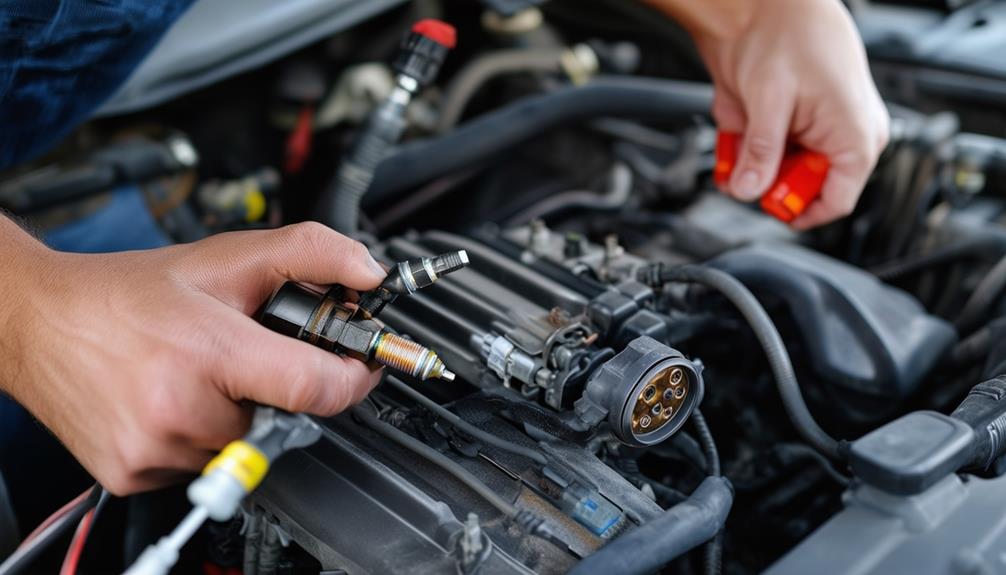
To effectively diagnose ignition issues in your Nissan NV200, you'll need a systematic approach and a keen eye for detail. Start by checking the basics: verify the battery is fully charged and the connections are clean and secure. A weak battery can mimic ignition problems, so ruling this out is essential.
It's also beneficial to periodically perform routine checks to prevent unexpected ignition failures.
Next, inspect the ignition switch. Turn the key to the ON position and listen for the fuel pump's hum. If you don't hear it, the switch might be faulty. Utilize a multimeter to confirm voltage going to the ignition coil. No voltage means the switch or wiring could be problematic.
Your NV200's onboard diagnostic system can be a goldmine of information. Use an OBD-II scanner to pull diagnostic trouble codes (DTCs). These codes can pinpoint the exact component causing issues, saving you time and guesswork.
Examine the ignition coil and spark plugs. Remove the spark plugs and inspect them for wear or fouling. A worn spark plug can lead to weak ignition. If the spark plug looks good, test the ignition coil by measuring its resistance with a multimeter. Compare the readings to the manufacturer's specifications. Out-of-spec readings indicate a faulty coil.
Don't overlook the distributor cap and rotor if your NV200 has them. Cracks, carbon tracks, or excessive wear can impede proper electrical flow. Cleaning or replacing these components is a straightforward repair technique.
Maintenance Tips
Your Nissan NV200's ignition system requires regular upkeep to secure peak performance and longevity. Keeping every component in prime shape won't only guarantee a smooth start but also prevent unexpected failures. For instance, understanding the ignition-related warnings can help you identify potential issues early. Here's a detailed guide to help you perform effective DIY maintenance and implement proactive preventative measures.
First, always inspect the spark plugs. These small components are vital for igniting the fuel-air mixture in the engine cylinders. Check for any signs of wear and tear, such as erosion or deposits, and replace them if necessary. Worn-out spark plugs can lead to misfires and reduced fuel efficiency.
Next, pay attention to the ignition coils. They amplify the voltage from the battery to the spark plugs. Make sure they're not cracked or corroded; otherwise, they mightn't deliver the required power. If you notice any damage, replacing them early can prevent more costly repairs down the line.
Regularly clean the ignition system contacts. Dust and grime can accumulate over time, leading to poor electrical connections. Use a contact cleaner specifically designed for ignition systems to keep these parts spotless.
Additionally, keep the battery terminals clean and secure. Corroded or loose terminals can disrupt the current flow to the ignition system. Check them periodically and use a wire brush to clean off any corrosion.
Lastly, verify your NV200's software is up-to-date. Modern vehicles rely heavily on computer systems, so an outdated ECU could cause ignition issues. Regularly check for software updates from Nissan.
- Inspect spark plugs
- Examine ignition coils
- Clean ignition system contacts
- Maintain battery terminals
- Update vehicle software
Ignition System Upgrades
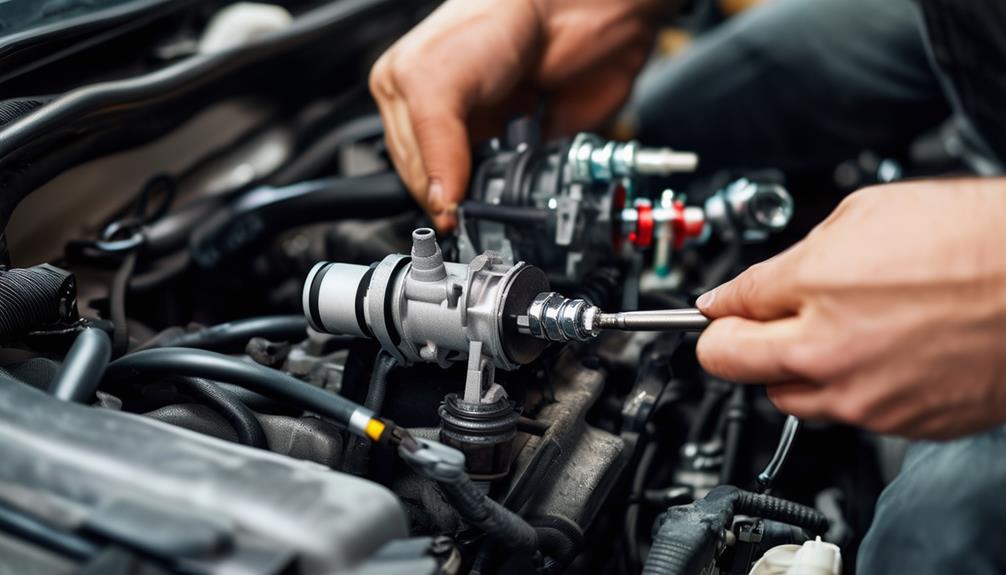
For those looking to enhance their Nissan NV200's ignition system, upgrading to high-performance components can yield significant benefits. One of the primary reasons to ponder an upgrade is to achieve noticeable performance enhancements, which can include improved fuel efficiency, faster start times, and smoother engine operation. Additionally, integrating smart key systems can further optimize your vehicle's security and convenience.
When upgrading the ignition system, start by focusing on high-quality spark plugs. Iridium or platinum spark plugs are excellent choices as they offer better conductivity and durability compared to standard copper plugs. These spark plugs can ignite the air-fuel mixture more efficiently, leading to enhanced combustion and overall engine performance.
Next, ponder upgrading the ignition coils. High-output ignition coils deliver a stronger spark, ensuring that the fuel mixture is burned more completely. This can result in better throttle response and increased horsepower.
Additionally, performance ignition wires with lower resistance can further optimize the spark delivery to each cylinder.
For those who are technically savvy, installing a performance ignition control module is another viable option. These modules can adjust the timing and intensity of the spark, providing precise control over the ignition process. This can be particularly beneficial if you're looking to fine-tune your vehicle's performance.
During the upgrade process, it's important to conduct system troubleshooting to ensure compatibility and proper installation. Check for any error codes using an OBD-II scanner and address any issues promptly. This diagnostic step will prevent potential malfunctions and guarantee that your upgraded components are functioning optimally.
Cost of Repairs
When it comes to the cost of repairs for your Nissan NV200's ignition system, understanding the factors that influence the pricing is important. Repair expenses can vary widely based on several elements, and knowing what drives these costs can help you make informed decisions.
First, the complexity of the issue plays a vital role. Simple fixes like replacing a worn-out key or reprogramming a transponder chip are generally less expensive. However, more extensive problems, such as a faulty ignition switch or a damaged ignition coil, can lead to costly fixes. Many Nissan models, especially those made after 2010, have advanced ignition systems that require specialized tools and knowledge for repair.
Here's a breakdown of factors that might affect your repair expenses:
- Type of Issue: Minor issues like key replacements are cheaper compared to major component failures.
- Labor Costs: The hourly rate of a skilled technician can greatly impact the total cost.
- Parts Availability: Genuine parts might be more costly, but they guarantee longevity and compatibility.
- Diagnostic Fees: Thorough diagnostic tests can add to the overall cost but are necessary for pinpointing exact issues.
- Warranty Coverage: If your vehicle is still under warranty, some repairs might be covered, reducing out-of-pocket expenses.
Utilizing advanced diagnostic tools and techniques can also streamline the repair process, potentially lowering labor costs. Technicians equipped with the latest technology can quickly identify and resolve issues, reducing downtime and expense.
To reduce repair expenses, consider regular maintenance and timely inspections. Addressing minor issues before they escalate into expensive fixes can save you money in the long run. Always choose a reputable service provider who uses quality parts and offers transparent pricing.
Frequently Asked Questions
Are There Any Recalls Related to the Nissan NV200 Ignition System?
To find recall information, check the official Nissan website or NHTSA database. Aftermarket parts impact your Nissan NV200's ignition system performance, potentially causing issues not covered by recalls. Always use OEM parts for best innovation and reliability.
Can Aftermarket Ignition Parts Void the Nv200's Warranty?
Imagine installing an aftermarket ignition coil, but your NV200's engine misfires. Warranty implications arise because manufacturers recommend using OEM parts. Ignoring these recommendations can void your warranty, leading to costly repairs. Always consult your warranty's specifics.
What Are the Best Brands for Replacement Ignition Parts for the Nv200?
For the NV200, consider top brands like Bosch and Denso for ignition parts. Make sure you follow the manufacturer's installation tips precisely to maintain performance and avoid warranty issues. Always verify compatibility with your vehicle's specifications.
How Often Should the Ignition System Be Inspected During Routine Maintenance?
You should inspect the ignition system every 30,000 miles to check for the best ignition system lifespan. Look out for signs of ignition system issues like difficulty starting, misfires, or unusual noises to prevent unexpected failures.
Are There Any Known Compatibility Issues With NV200 Ignition System Upgrades?
While upgrading the NV200 ignition system is exciting, you'll often encounter common issues. Not all upgrade options are compatible, so scrutinize the specifics to guarantee seamless integration and peak performance for your innovative vehicle.
Conclusion
So, now you're practically an expert on the Nissan NV200 ignition system. With all this newfound knowledge, diagnosing issues should be a breeze, right? Ironically, even the best-maintained systems can surprise you with a sudden hiccup. But, armed with these insights, you're better prepared to tackle those pesky ignition problems head-on. Remember, while upgrades can enhance performance, regular maintenance is your best defense against costly repairs. Happy diagnosing!

